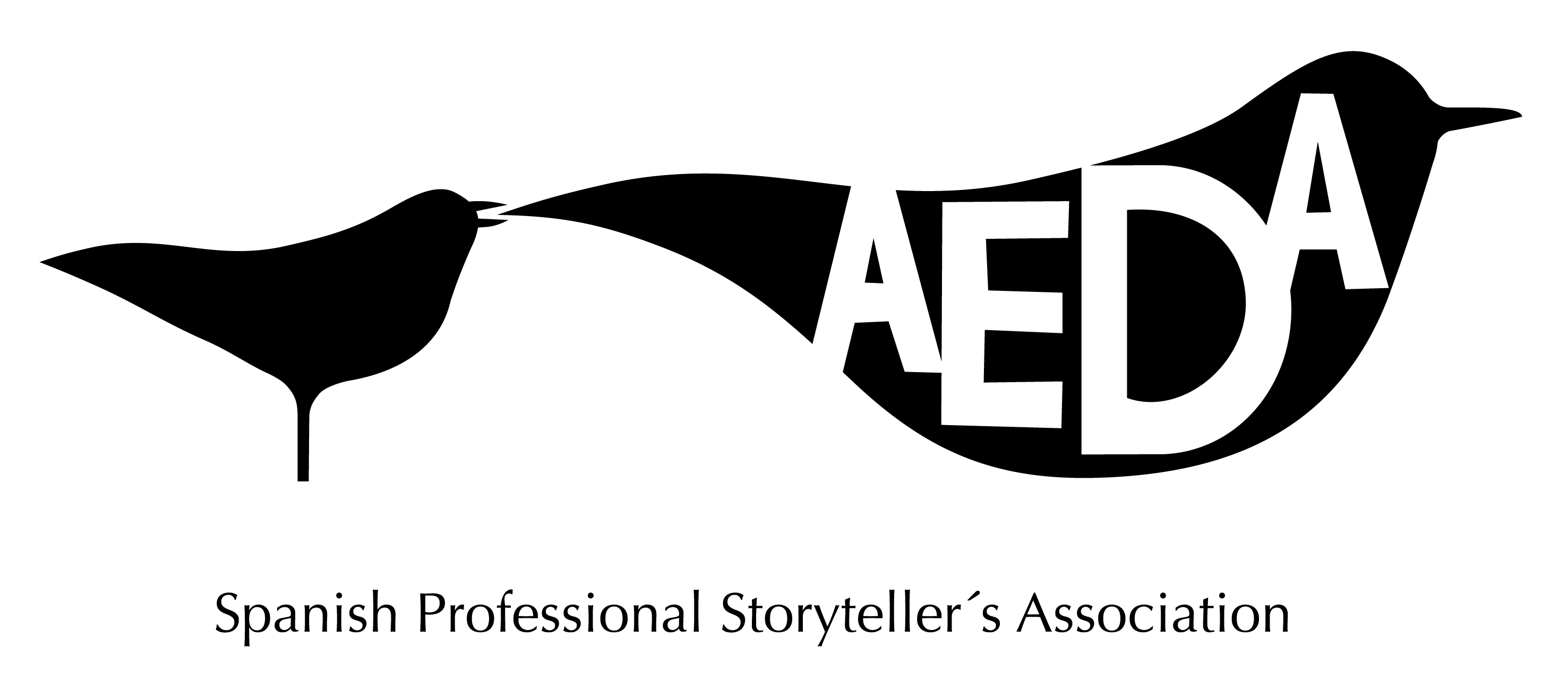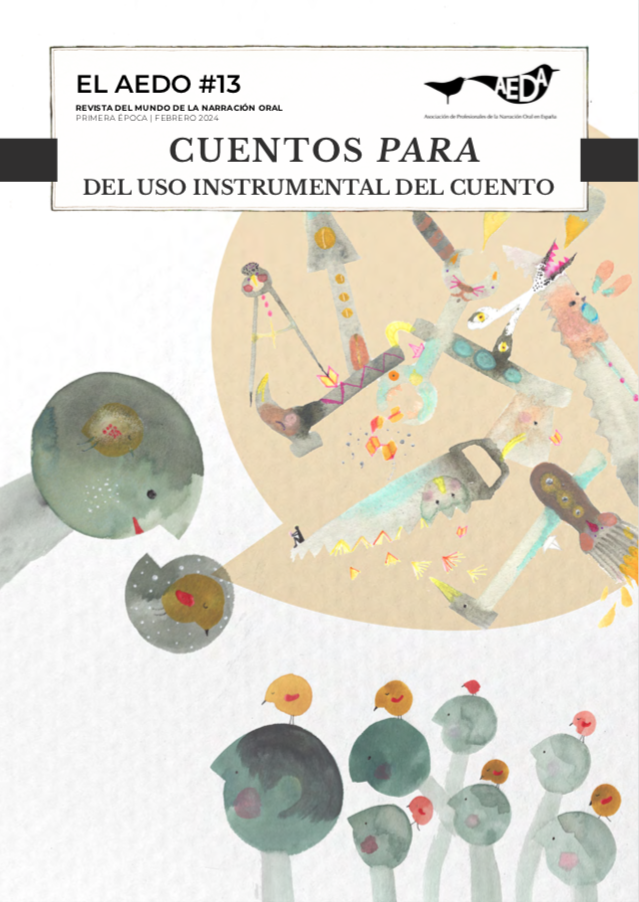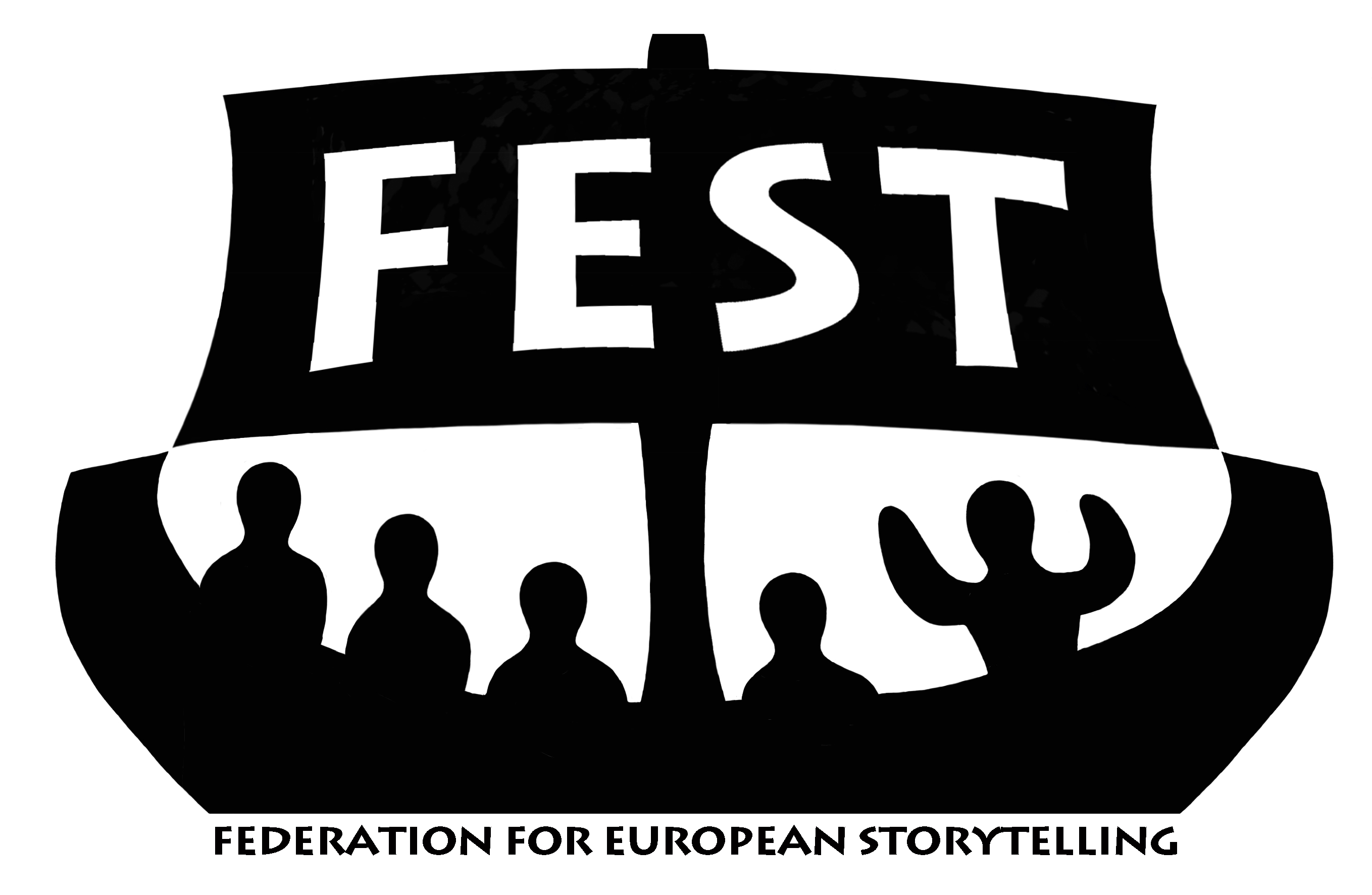When we tell a story a relationship is established between the narrator and the others, and I am saying "the others" deliberately because what I find interesting is to develop the idea of the role of the narrator within society, and not solely with respect to those members of the public who actually go to storytelling shows.
What is the relationship between the narrator and the others?
This question follows me around in my work and comes up in essays, on the stage and on courses. To travel the roads of the art of telling stories accompanied by a good question keeps us on our toes, with open eyes and a generous spirit. The answers are at times dangerous; above all those purchased in the supermarket of easy ideas which do nothing but settle the matter and close the door on possible debate.
I prefer to imagine an open response, like a never-ending puzzle in which little by little pieces are added and spaces are defined. So if I chance my hand with a lucky answer it is (and should be taken as such) with the intention of enriching and provoking debate, but not closing it.
We have here two spaces I wish to distinguish within our puzzle.
The first deals with the representation that the spectator makes of us.
A narrated story only comes to life when whoever is listening completes it through the power of their imagination. We say "castle" and a unique castle appears in the mind of each spectator; without this resource the narrator would have to show the castle; reproduce it, and that, we would all agree, is the exact opposite of the principle of narration. In my opinion the image of the spectator as accomplice and co-creator of the story should prevail over others which impost the logic of the market in identifying consumer and customer. Spectators are our partners, and we must be demanding of them, and trust in their intelligence and sensitivity. It is the only way to show respect. Thus the spectator bears their part of the responsibility, and if a narrator has to cultivate the art of narration, we may say that the spectator should cultivate the art of listening.
The second space within the puzzle refers to the social function of the person who decides to narrate before the others.
Some years ago I read The Storyteller by Vargas Llosa. Time has eroded my memory of the novel, and I am not sure that the fragments which remain belong to the novel or are the fruit of my imagination.
In the novel the tribes of the Peruvian Amazon are waiting for the storyteller; that is, for "the person who narrates". When he arrives at a village everyone stops what they are doing in order to listen. The person who narrates tells of the births in another valley, of the flooding of a village, or of a mourned death. In his tales he mixed the divine, the origin of things and recent events. The person who narrates maintains the living tradition and unites it with random day-to-day events hand-in-hand with origin of the world and the new-born
When the narration comes to an end, the person narrating listens to the others, to the events and anecdotes that will feed future tales. The person who narrates will once more disappear into the jungle, knowing the paths that link the valleys, knowing the remotest spots, knowing the peoples and the various dialects, and how the peoples know how to decipher future storms from the wind and the flight of birds. In order to feed his stories he does not climb to the top of a mountain to ask the moon and the stars what should be told to the next tribe. His tales are fed by the tales he is told; from voices, songs, laughter and crying. The person who narrates does not have more mouths than the others by virtue of being the narrator. He has two ears, two eyes, two hands, a nose, and lust like the others, only one mouth. From this seven to one ratio, each spoken word will have been fed seven times by touching, watching, feeling and listening to theirs.
It would be fairer to call the person who narrates the person who observes.
A narrator must be that person who observes, and through observing narrates.
To me an understanding of the narrator as an observer is fundamental. It is impossible to imagine that telling a story consists of getting up on a stage and saying words. The person who narrates, whether they like it or not, is representing the world, their world, and thus must have intimate knowledge of it, must be informed and trained, read its poets and writers, know its traditions and its remotest spots, know what is happening in the country, in the city, to the neighbour, and may also contemplate the moon and the stars.
Form the novel I remember or think I remember a detail which I dedicate to those (ir)responsible for cultural policy in our countries, who confuse art with a product subject to the relentless laws of the marketplace and competition: If a stranger asks the Indians where the storyteller is, no one replies, no one says when he came nor when he will come again, no one even says if he exists or if he is merely a legend. The person who narrates is kept like a treasure. The Indians protect him the same way as every people must protect their memory.









